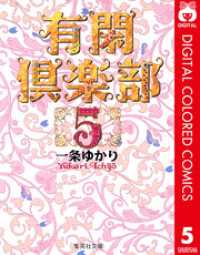Full Description
Arguably the first book-length exploration of decolonizing English as a Foreign Language (EFL) writing education, this novel volume uses poetic autoethnography to provide a situated, dynamic, and complex view of multilingual writers through their second language (L2) academic writing and creative writing.
Responding to contemporary calls to decolonize L2 writing as a field and diversify academic writing for multilingual students, this book is the first of its kind to explore the decolonization of EFL writing education from a Global Southern context. Chapters critically and creatively consider issues of educational technologies, translanguaging, academic writing, epistemology, and pedagogy from two writing courses from a Global South and classroom writing ecology perspective. Using poetic autoethnography alongside data from authentic writing classrooms in Thailand, the book posits that emergent translanguaging literature can be cultivated for decolonization purposes, critiquing and providing decolonial options in such areas as monolingual ideology, freewriting, student identity, and mind.
Empowering EFL writing teachers to raise students' critical awareness of issues such as writing, culture, and coloniality, this book will be of key interest to researchers, scholars, and postgraduate students in the fields of applied linguistics, Teaching English to Speakers of Other Languages (TESOL), L2 writing, multilingual education, and language policy and planning.
Contents
Part I Teacher's Stories
1 A Poetic Disruption
2 Translanguaging the Self to Decolonize EFL Writing Education
3 Decolonizing EFL Writing Research
Part II Tales from Two EFL Writing Classrooms
4 Translanguaging Identity as a Decolonization Response
5 Multilingual Writers' Lexical Resources: Decolonizing EFL Academic Writing Education
6 Synergizing EFL Freewriting and Translanguaging for Decolonization Purposes
7 Decolonizing Technologies in EFL Writing Education
Part III Tales from EFL Student Writers
8 English Fluency in Thailand: Experiencing Uncertainty between Identity and the Future
9 Nesting In-Between: A Distraught Account of Trying to Preserve My German Voice and Female Identity in Academic English
10 Crossing Cultures: An Autoethnography of an Edgewalker's Identity
11 Becoming What I Thought Were Monsters: My Literacy Identity and Experience as a Bad Student to an English Teacher
12 The Voice Encroaching Me About English Writing: "I Think I'm Not Good Enough"
13 THE SOUTH
14 Earth ... Moon or Sun?
15 The Goodbye Secret
16 I Am Different
17 A Watermelon Thief
-

- 電子書籍
- KILLER-空色の君-2 BLIC
-

- 電子書籍
- 1ミリのズレが許せなくて世界制覇しまし…
-

- 電子書籍
- レベルMAXのAIロボットとSSS級の…
-

- 電子書籍
- 有閑倶楽部 カラー版 5 りぼんマスコ…




